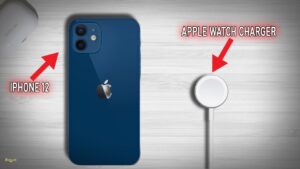Curious to know how long your Fitbit’s battery will last? Well, you’re in luck! In this article, we’ll dive into the nitty-gritty details of Fitbit battery life, so you can stay powered up and on track with your fitness goals. How long do Fitbit batteries last, you ask? It all depends on a few factors, such as which model you have and how you use it. But fear not, we’re here to guide you through it all, ensuring you get the most out of your Fitbit device. So, let’s jump right in and shed some light on the topic.
How Long Do Fitbit Batteries Last?
Fitbit has become a popular brand in the world of wearable technology, offering a range of devices designed to help individuals track and improve their health and fitness. One important aspect of any wearable device is its battery life. After all, nobody wants to constantly recharge their device or worry about it running out of battery at an inconvenient time. In this article, we will explore the question: How long do Fitbit batteries last? We will delve into the factors that affect battery life, how to maximize battery performance, and provide some tips on choosing the right Fitbit device based on battery longevity.
Factors Affecting Fitbit Battery Life
A Fitbit’s battery life can vary depending on several factors. Here are some key factors that can affect how long a Fitbit battery lasts:
- Device Model: Different Fitbit models have varying battery capacities, which directly impact battery life. Generally, more advanced or feature-rich devices may have shorter battery lives compared to simpler models.
- Usage and Activities: The amount of time you spend using your Fitbit and the activities you engage in can impact battery life. Continuous heart rate monitoring, GPS tracking, and intense exercise may drain the battery faster than regular day-to-day usage.
- Screen Brightness: Higher screen brightness settings can consume more power. Adjusting the brightness level to a comfortable setting can help extend battery life.
- Notifications: Enabling notifications on your Fitbit for calls, messages, and app updates can contribute to battery drain, as the device regularly communicates with your smartphone.
- Wireless Sync: Syncing your Fitbit wirelessly with your smartphone or computer can contribute to battery drain, especially if done frequently. Although syncing is essential for data tracking, minimizing unnecessary syncs can help conserve battery.
- App Usage and Third-Party Services: Some Fitbit apps and third-party services may use more battery power when in use. Be mindful of the apps you have installed and their impact on battery life.
- Temperature: Extreme temperatures, both hot and cold, can affect battery performance. It is recommended to avoid exposing your Fitbit to extreme temperatures to maintain optimal battery life.
Expected Battery Life for Different Fitbit Models
Fitbit offers various models with different battery capacities and features. Here is an overview of the expected battery life for popular Fitbit models:
Fitbit Charge 4:
- Expected battery life: Up to 7 days
- Charge time: Approximately 2 hours
- Note: Battery life may vary depending on usage and other factors.
Fitbit Versa 3:
- Expected battery life: Up to 6 days
- Charge time: Approximately 2 hours
- Note: Battery life may vary depending on usage and other factors.
Fitbit Inspire 2:
- Expected battery life: Up to 10 days
- Charge time: Approximately 2 hours
- Note: Battery life may vary depending on usage and other factors.
Fitbit Sense:
- Expected battery life: Up to 6 days
- Charge time: Approximately 2 hours
- Note: Battery life may vary depending on usage and other factors.
It’s worth noting that these are the manufacturer’s estimates, and actual battery life may vary based on individual usage patterns and settings.
Tips to Maximize Fitbit Battery Performance
While Fitbit devices come with impressive battery life, it’s always useful to know how to make the most of it. Here are some tips to maximize your Fitbit’s battery performance:
- Adjust Screen Brightness: Lowering the screen brightness can significantly extend battery life. Find a level that is still visible to you while preserving energy.
- Manage Notifications: Disable unnecessary notifications on your Fitbit to reduce the device’s communication with your smartphone, thus conserving battery power.
- Use Battery-Saving Mode: Fitbit devices often offer battery-saving modes that limit certain features to extend battery life. Enable this mode when you know you won’t need all the device’s features.
- Turn Off All-Day Sync: If you don’t require real-time syncing, turn off the all-day sync feature to minimize battery drain. You can manually sync your data periodically instead.
- Keep Firmware Up to Date: Regularly update your Fitbit device’s firmware as new updates often include optimizations and bug fixes that can improve battery performance.
- Avoid Extreme Temperatures: As mentioned earlier, exposing your Fitbit to extreme temperatures can negatively affect battery life. Protect your device from excessive heat or cold.
Choosing the Right Fitbit for Longer Battery Life
If battery life is a top priority for you, it’s essential to consider the right Fitbit model. Here are a few models known for their longer battery life:
- Fitbit Inspire 2: With an expected battery life of up to 10 days, the Fitbit Inspire 2 offers excellent longevity for those seeking an extended usage period.
- Fitbit Charge 4: The Fitbit Charge 4 boasts a battery life of up to 7 days. It also includes built-in GPS, making it suitable for fitness enthusiasts who require precise tracking.
By choosing a Fitbit model with longer battery life, you can enjoy extended usage without worrying about frequent recharging.
In conclusion, the battery life of a Fitbit device depends on various factors, including the model, usage patterns, and settings. With the right adjustments and considerations, you can maximize your Fitbit’s battery performance and enjoy uninterrupted tracking of your health and fitness goals.
Frequently Asked Questions
How long do fitbit batteries typically last?
The average battery life of a Fitbit device can vary depending on the model and usage. However, most Fitbit trackers and smartwatches have a battery life that lasts between 4 and 7 days on a single charge.
Can I extend the battery life of my Fitbit?
While the battery life of Fitbit devices is already designed to last several days, there are a few things you can do to potentially extend it further. It is recommended to disable unnecessary features, reduce screen brightness, and limit notifications to conserve battery power.
What factors can affect the battery life of a Fitbit?
Several factors can impact the battery life of a Fitbit device. These include the frequency of heart rate monitoring, GPS usage, screen brightness, continuous syncing with a smartphone, and the overall intensity and duration of usage.
How long does it take to fully charge a Fitbit device?
The time required to fully charge a Fitbit device depends on the specific model and the charging method used. In general, most Fitbit devices can be fully charged within 1-2 hours when plugged into a power source, such as a USB port or wall adapter.
Do Fitbit batteries become less efficient over time?
Like any battery-powered device, the efficiency of a Fitbit’s battery can gradually decrease over time. However, Fitbit devices are designed to maintain a reliable battery life for an extended period. Regularly updating the device software and properly caring for the battery can help sustain its performance.
Is it possible to replace the battery in a Fitbit?
Fitbit devices have built-in batteries that cannot be easily replaced by users. When the battery of a Fitbit device no longer holds a charge, it is generally recommended to contact Fitbit support for further assistance or explore potential warranty options.
Final Thoughts
Fitbit batteries typically last anywhere from 3 to 7 days, depending on the specific model and usage patterns. These wearable devices are designed to be long-lasting, allowing users to track their fitness and health data without constant recharging. With their innovative technology, Fitbit has prioritized battery life to ensure users can rely on their devices throughout the day. Whether you’re a fitness enthusiast or simply looking to keep track of your steps, Fitbit provides a durable battery life that allows you to stay connected and motivated. So, if you’re wondering about the longevity of Fitbit batteries, you can rest assured that they will last for several days before requiring a recharge.


